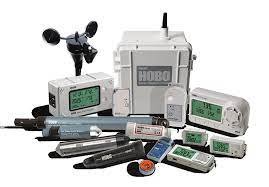Do you need a digital data logger for your organization?
Digital data loggers are devices that monitor environmental conditions like temperature, pressure, humidity, voltage, and more. Because these devices are digital, they can transmit their data to a remote monitoring system or work with other software to track and analyze data.
Many companies find that digital data loggers are a vital part of their processes in a variety of industries. They are an upgrade over old-fashioned chart recorders and they help companies make better, more effective, data-driven decisions.
If you are thinking about adding digital data loggers to how your company operates or of upgrading your current digital data loggers to the latest and greatest, you want to consider a few things first. Here are four things to think about when selecting a digital data logger.
How large is your organization?
Asking yourself this question isn’t just about how big your organization is now, but how big you think it will be in the future. Growth and expansion are some of the biggest reasons to add or upgrade your digital data loggers.
In very small organizations, it may be possible to monitor environmental conditions or some other factor that data loggers can help keep track of by hand. If you are in a small company and do use data loggers, manually downloading the data may also be fine.
At a big company, or a small company looking to expand product lines, facilities, or add SKUs, this type of manual monitoring can become time-consuming and costly. At some point in a company’s growth trajectory, it may become completely unfeasible.
The best rule of thumb here is the larger your company is or wants to become, the more you should look for digital data loggers that provide data with less human intervention. In today’s connected world of the Internet of Things, you can easily find data loggers that communicate with any place or system you need them to, saving your company dollars and making scaling much easier.
What type of monitoring are you doing?
The type of monitoring you will do with your digital data loggers informs what type you need. All digital data loggers are not created equal and some are better suited for certain jobs than others. Knowing what you’re monitoring is so important.
If your first goal is to do temperature or thermal (temperature plus humidity) mapping, you will need a lot of digital data loggers and you will want ones that are internet-connected so you can gather all the data in a single place to create your comprehensive map.
If you are putting a longer-term environmental monitoring program in place, you may want to use the same type of devices but may use fewer of them.
If you don’t want to map a space or set one up for monitoring, you may need to track temperature-sensitive inventory through the cold chain. In this case, you may need transportation Bluetooth data loggers. These can travel with inventory to monitor their temperature through the entire cold chain trip.
There is a perfect digital data logger for every task so make sure you set your monitoring goals before you choose your data logger.
Do you want remote monitoring capabilities?
Being able to monitor a space or a shipment from a remote location is one of the biggest advantages digital data loggers have over older models or chart recorders. Dickson also mentions that remote monitoring capabilities are one reason to opt for the most up-to-date digital data logger models.
Remote monitoring saves time, human hours, and money while making your entire monitoring process more effective and efficient. Being able to monitor a sensitive environment from miles away or even the next building over gives you flexibility and eases the pressure on your monitoring staff.
If you have multiple locations to monitor, remote monitoring makes a ton of sense. If you have ever had issues with a temperature-sensitive environment that you weren’t able to remedy or weren’t aware of right away and it cost you money or product, you already understand the advantages of remote monitoring.
Pairing digital data loggers with a cloud-based remote monitoring system is something every business should at least consider. And, with the advances in technology, these types of setups are easier to install and more cost-effective than ever.
Does your organization face regulatory guidelines?
If your company is in a highly regulated industry, you cannot afford not to use digital data loggers and, if you are using old ones, you should upgrade. These industries include the food and beverage, pharmaceutical, aeronautics, cosmetics, precision manufacturing, medical device manufacturing, or healthcare industries.
Not having the proper digital data loggers can really cost companies in these industries. Falling out of compliance can lead to governmental fines or shutdowns that cost your business time and money. Even worse, if the data loggers you are currently using don’t work as well as they should, you could end up selling an unsafe product, potentially causing lasting damage to your business and brand.
Industries that face regulatory guidelines must have the best digital data loggers available. This doesn’t mean you have to replace your digital data loggers every year, but it does mean if you have had your loggers and/or monitoring system in place for a while, you should at least look at the newest options.
Conclusion
Understanding the present and future size of your business, the type of monitoring you need, how remote monitoring could benefit you, and your industry’s regulations can help immensely in choosing your first or next digital data logger. Taking the time to ask and answer these questions upfront will help you find the perfect fit for what you need and help you get the most out of it.







